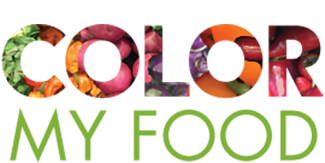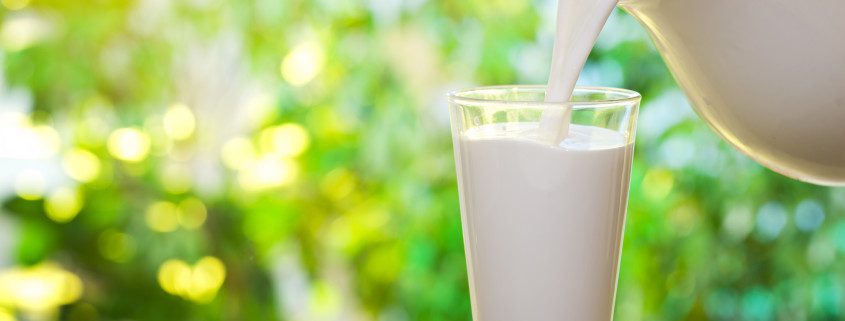Drink Milk?
When she was two years old, an eye infection puffed our daughter’s eyes almost shut. Her pediatrician and a pediatric eye specialist prescribed antibiotics and steroid eye creams. Finally, an acupuncturist trained in Traditional Chinese Medicine—who was treating my father—checked her eye, tongue and pulse and said unequivocally that she was sensitive to dairy. I looked at him with blatant disbelief. He responded, “Try it—eliminate dairy for fourteen days.”
Time repeatedly proved an unquestionable link between my daughter’s eye infections and dairy consumption convincing us to remove dairy from our refrigerator and diet. Worried that she wouldn’t get adequate nutrition (calcium and protein) without dairy, I read about dairy and health. This is what I found:
- Milk and protein
I didn’t find any supporting evidence that milk is a good source of protein. On the contrary, the primary protein in milk (casein) seems to cause health problems.
[su_expanding_quote_without_link alignment=”full” source=”What To Eat, Marion Nestle” full_quote=”Cow’s milk contains at least five kinds of proteins that can cause allergic reactions in children and adults who are sensitive to them. Even if milk proteins do not cause allergies, they could cause problems of “cross-reactivity. This means that your body might have an immune reaction to milk proteins… This could cause you to develop an autoimmune disease.” short_quote=”Cow’s milk contains at least five kinds of proteins that can cause allergic reactions”]- Milk and calcium.
I discovered that milk is not necessarily the best source of calcium. What’s more, average US dairy consumption can leach calcium from our bones.
[su_expanding_quote_without_link alignment=”full” source=”Cancer Battle Plan, Anne Frahm” full_quote=”When we consume dairy products, we are draining our bodies of their calcium stores. Milk and cheese are extremely acidifying in our systems. To counterbalance this effect, our bodies compensate by alkalinizing it with calcium from our own bones. A much better source of calcium would be raw sesame seeds sprinkled on our salads. Other great sources of calcium are kelp, leafy greens, figs, dates and prunes. Raw nuts are excellent source not only of calcium but protein as well.” short_quote=”When we consume dairy products, we are draining our bodies of their calcium stores”] [su_expanding_quote_without_link alignment=”full” source=”What to Eat, Marion Nestle” full_quote=”We don’t need dairy products to get sufficient calcium. Vegetables, beans, fruits, and nuts are rich sources of calcium, potassium, vitamin K, magnesium, and vegetable protein, as well as the phytochemicals and micronutrients that are gaining recognition to be important for bone strength. Green vegetables, in particular have a powerful effect on reducing hip fractures, they are not only rich in calcium, but other nutrients as well, such a vitamin K, which is crucial for bone health. Those who eat the most fruits and vegetables have denser bones.” short_quote=”We don’t need dairy products to get sufficient calcium”]The more I read, the more committed I’ve become to organic dairy. The massive amounts of antibiotics used on dairy cows increase (human) resistance to antibiotics to the point antibiotics become ineffective when ill health requires them. Add to that the misery of overcrowded cows being injected biweekly in their udders …I don’t want to be part of that.
[su_expanding_quote_without_link source=”What to Eat, Marion Nestle” full_quote=”To increase profits, the dairy industry consolidated operations. This means fewer farms and fewer cows must produce more milk, which creates a snowball of issues: growth hormones, antibiotics to treat skin infections from biweekly hormone injections, udder infections from forcing the cows to produce more milk than is normal, crowded conditions which means infections spread faster – all of which means a dramatic increase in antibiotics as a standard procedure. The crowded conditions have an environmental impact and inhumane treatment of the cows. Their wastes are more concentrated; they can spread infections more easily, and need to be treated with antibiotics more often. Antibiotics and hormones can get into the milk, and perhaps infect human health.” short_quote=”Antibiotics and hormones can get into the milk, and perhaps infect human health”]- Milk and health.
I sought evidence that milk and dairy are necessary to our health. I was astonished to find that milk is NOT necessary to our health. What’s more, it can actually cause health problems.
[su_expanding_quote_without_link source=”The China Study, Colin Campbell Phd and Thomas Campbell II MD” full_quote=”Consuming cow’s milk is strongly linked to multiple sclerosis (MS)… The progression of MS is greatly reduced by a low-saturated fat diet…Knowing the strength of evidence against animal foods, cow’s milk in particular, for both MS and Type 1 diabetes, we need to begin thinking about food and its relationship to a much broader group of autoimmune diseases.” short_quote=”Knowing the strength of evidence against animal foods, cow’s milk in particular, for both MS and Type 1 diabetes, we need to begin thinking about food”]There’s a lot of information linking milk/dairy products with cancer, particularly prostate and breast cancer.
“Several lines of evidence indicate that consumption of dairy products is associated with increased risk of prostate cancer incidence and mortality. Avoidance of these products may offer a means of reducing risk of this common illness.”
http://www.pcrm.org/health/health-topics/milk-consumption-and-prostate-cancer
My conclusions:
- There’s no compelling health reason to drink cow’s milk. We can get calcium from other sources, particularly green leafy vegetables, beans and seeds.
- Cow’s milk and dairy is an occasional, rather than daily item in our house. I prefer it in my coffee to non-dairy milks. We enjoy real butter on our toasts a couple times a month and plain Greek yogurt occasionally with granola or a drizzle of honey, or a dollop on chili or tagines (Moroccan stew).
- When I purchase milk/dairy products, I choose organic because I know the cows are never treated with hormones, nor antibiotics (except to treat disease and organic dairies must then wait before allowing milk from antibiotic-treated cows back into the food supply.)
- My favorite alternative to cow’s milk is almond milk to use in oatmeal, granola and smoothies. Every now and again we have soymilk; I’m cautious about soy because of GMO issues and because most soymilk is highly processed.
For more information about calcium and bone health see
Protect Yourself Against Osteoporosis
http://www.drfuhrman.com/disease/Osteoporosis.aspx
Milk: Is it the Elixir We’ve Been Sold?
http://nutritionstudies.org/milk-the-elixir-weve-been-sold/
Twelve Facts about Milk
I’m cautious about claims that seem extreme, but find this article relevant because by being informed we become better consumers
http://nutritionstudies.org/12-frightening-facts-milk/
Wondering why we think dairy is so important? It’s highly politicized; so much money is spent by the dairy industry which spills into government policies and FDA guidelines.
Whitewashed: How Industry and Government Promote Dairy Junk Foods
To learn more about the dairy industry and politics, Marion Nestle’s website is a powerful resource




